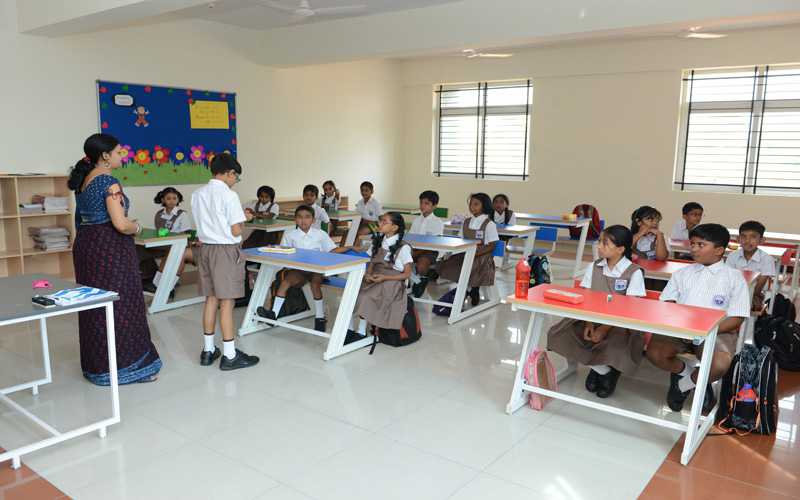
Balancing Academics and Play: Why Both Are Important
- Education
- March 17, 2024
- No Comment
- 154
In the journey of childhood development, striking a balance between academics and play is crucial for fostering holistic growth and well-being. While academics lay the foundation for intellectual development, play serves as a vital tool for social, emotional, and physical development. In this blog, we’ll explore the importance of balancing academics and play in a child’s life, highlighting why both aspects are essential for their overall development. This is what the best CBSE schools in Gurgaon keep an eye on for overall development of the child.
The Importance of Academics:
Academics form the core of a child’s educational journey, providing them with essential knowledge, skills, and competencies needed for success in school and beyond.
- Intellectual Development:
– Academic subjects such as mathematics, science, language arts, and social studies stimulate cognitive development, critical thinking, and problem-solving skills.
– Through structured learning experiences, children acquire knowledge, understand concepts, and develop the ability to analyze and apply information effectively.
- Academic Achievement:
– Academic excellence is often equated with success in education and future career opportunities.
– Strong academic performance opens doors to higher education, scholarships, and professional advancement, empowering children to reach their full potential.
- Foundation for Lifelong Learning:
– Academic education lays the groundwork for lifelong learning, instilling a love for learning and curiosity about the world.
– By mastering foundational skills and acquiring a broad base of knowledge, children develop the confidence and resilience to tackle new challenges and pursue their interests.
The Importance of Play:
Play is a natural and essential aspect of childhood that promotes creativity, imagination, social interaction, and physical health.
- Social and Emotional Development:
– Play provides children with opportunities to explore social roles, develop empathy, and practice communication and cooperation skills.
– Through imaginative play, children learn to express their emotions, resolve conflicts, and navigate social interactions, fostering emotional intelligence and resilience.
- Creativity and Imagination:
– Play stimulates creativity, imagination, and innovation as children engage in imaginative scenarios, storytelling, and role-playing activities.
– Creative play encourages divergent thinking, problem-solving, and the exploration of new ideas, preparing children for future challenges and opportunities.
- Physical Health and Well-being:
– Active play promotes physical health, coordination, and gross motor skills development.
– Outdoor play, sports, and recreational activities contribute to children’s overall well-being, reducing stress, improving mood, and enhancing physical fitness.
Balancing Academics and Play:
Finding the right balance between academics and play is essential for promoting well-rounded development and academic success.
- Integrated Learning Approaches:
– Adopt integrated learning approaches that incorporate both academic instruction and play-based activities into the curriculum.
– Fuse academic concepts with hands-on experiences, experiments, and projects that encourage exploration, creativity, and discovery.
- Structured and Unstructured Play:
– Provide opportunities for both structured and unstructured play to cater to different aspects of child development.
– Structured play activities such as organized sports, music classes, and art workshops offer guidance and skill development, while unstructured play allows for free exploration and self-directed learning.
- Supportive Learning Environment:
– Create a supportive learning environment that values both academic achievement and play-based learning.
– Encourage educators to incorporate play-based strategies into their teaching practices and provide resources and training to support their implementation.
Conclusion:
Balancing academics and play is essential for nurturing well-rounded individuals who are intellectually curious, socially adept, and emotionally resilient. By recognizing the complementary nature of academics and play and fostering a balanced approach in education, we can ensure that children receive the holistic support they need to thrive academically, socially, and emotionally.






